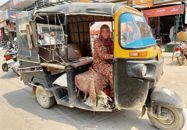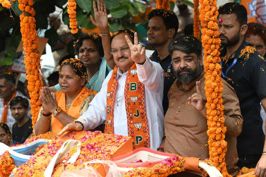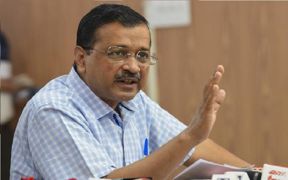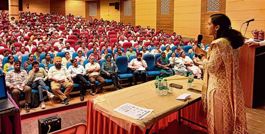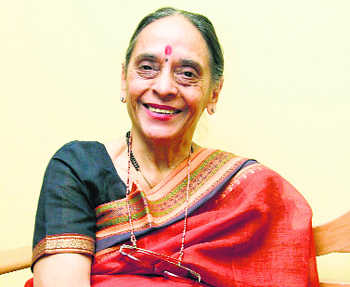
Leila Seth
Ram Varma
Discrimination against the girl child is rampant in India as we Indians prefer sons. A bride entering her new home is blessed by her mother-in-law with the words, Putravati bhava! (May you beget sons!) It’s not that parents don’t love daughters, but the love they shower on sons is special. They dote on them, grant their every wish. A girl child is not on the same footing. Curiously, mothers (who had suffered discrimination in childhood) are even more biased towards sons. Female literacy rates are way below male literacy rates as girls stay at home to help in household chores.
While daughters are considered paraya dhan, parents refer to their sons as their budhape ki lakri. Author Leila Seth’s father was different. Unlike most Indian parents, her parents made no distinction in rearing their kids. They showered the same love and care on her as on her male siblings.
Various lectures delivered by Seth on subjects like rights of prisoners, widows, children, women, etc. at different forums have been compiled as chapters of this book, but her prime concern appears to be the state of women’s rights in India or, more pertinently, the lack of these. She has impeccable credentials. She was the first woman Chief Justice of a High Court. She eloquently exposes the fragility of our legal, juridical and societal apparatus for ensuring women’s rights in India.
The UN Convention on Elimination of Discrimination against Women in 1979 had identified specific areas of discrimination. These are political rights, marriage and family, and employment. Seth rues that in all these spheres India has a long way to go. She would like Parliament to pass the law of reserving one-third seats for women in our legislatures to redress the imbalance in the political field. She compliments Nehru for championing the Hindu Code Bill in the 1950s, but rails against ‘the pusillanimous, vote-seeking’ Rajiv Gandhi Government for nullifying the Supreme Court’s judgment in Shah Bano case. ]It was an act of grave injustice to Muslim women, she holds.
She would like that a Uniform Civil Code (in other words, a uniform family-law code) in pursuance of Article 44 of the Constitution be enacted on priority to ensure justice and equality, dignity and self-esteem to women. Denying women equality in personal laws is cruel. One cannot wait indefinitely for the approval of religious leaders. She says that even in Pakistan and Bangladesh reforms have taken place.
Seth had made a significant contribution in reforming the rape law. After the horrendous rape in Delhi in 2012 of a para-medical student who is now known as Nirbhaya, the government had constituted Justice J.S. Verma Committee to suggest amendments to the rape law with a view to making it more stringent and increasing its deterrence. Seth was appointed a member of the Committee. Working ceaselessly, the Committee submitted its report within the stipulated time of a month and Parliament promptly incorporated its main suggestions in the new law providing more severe and expeditious punishment to the perpetrators. Seth vividly recaptures those exciting, sleepless days of preparing the historic document.
She thinks that there is also a need for gender sensitisation of the judiciary. She cites the case of Bhanwari Devi in Rajasthan who was instrumental in stopping child marriages in her village but was later allegedly raped by men of the humiliated families. However, the Sessions Judge acquitted the accused expressing the view that by virtue of their age and social standing, (being higher in caste hierarchy) they were incapable of raping a low-caste woman. Seth observes that the judges ought to rid their minds of these prejudices and learn the language of equality and impartiality.
In a chapter on judicial administration, Seth gives statistics of the mind-boggling backlog of cases pending in Indian courts for umpteen years. While the pending cases in the Supreme Court are over 60,000, their number in High Courts (hold your breath) is over 43 lakhs and over 2.5 crores in sub-ordinate courts. This is staggering. It’s a world record and we’ve beaten all countries of the world hollow. Seth refers to the adage, ‘Justice delayed is justice denied.’
In other words, it’s a wholesale miscarriage of justice. She frankly admits that the process-servers of the court are ‘persuaded’ into giving false reports and advocates obtain undue adjournments as their fee is dependant on the number of appearances. Even murder cases keep pending for years, while in all other civilised countries, these are decided within months. Why can’t we set some limits on disposal of cases? The usual excuse is shortage of judges. But the main responsibility lies on the courts to discipline themselves, their staff and the counsel.






